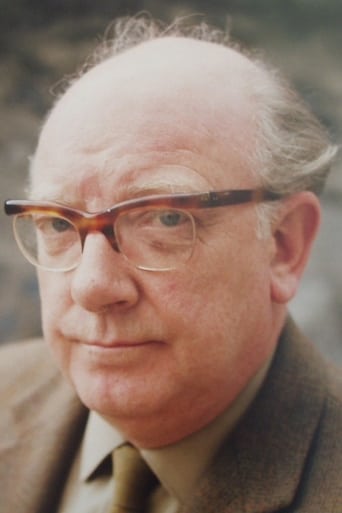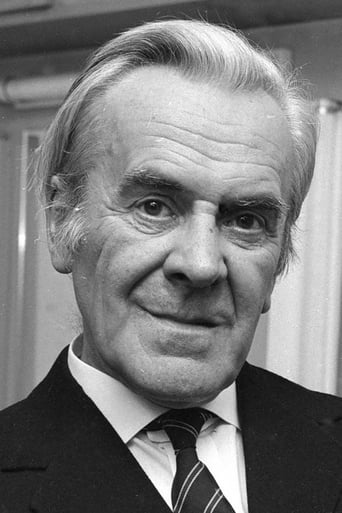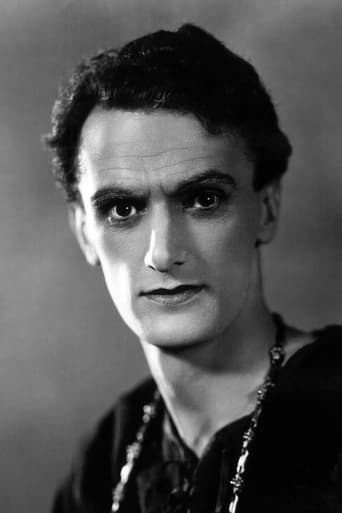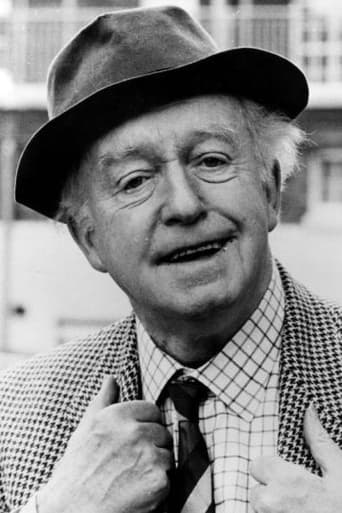James Hitchcock
The 1970s are often regarded as a golden age of British television comedy, a period which saw numerous classic sitcoms as well as sketch shows such as "Monty Python's Flying Circus". The period was, however, emphatically not a golden age of British film comedy, and what worked well on television rarely transferred successfully to the big screen. The most triumphant exceptions to this rule were provided by the Pythons, but their best films ("Monty Python and the Holy Grail" and "Life of Brian") were very different in conception to their TV show.The main problem with adapting sitcoms for the cinema is that concepts devised to fit the BBC's 30 minute slots (25 minutes on ITV, which has to find room for commercials) do not always work as well when expanded into a feature film three or four times as long. Few people will remember the film versions of, say, "Up Pompeii!" or "Steptoe and Son" with the same affection as the television versions. In the case of many classic TV comedy shows ("Some Mothers Do 'Ave 'Em", "Yes, Minister", "Fawlty Towers", "The Goodies") no attempt was made to film them at all, for which we can be grateful. Characters such as Michael Crawford's Frank Spencer or John Cleese's Basil Fawlty can be hilarious in half-hour doses, but I doubt if they would remain as funny over two hours. One comedy programme (albeit a dramatisation of a comic novel rather than a sitcom in the normal sense) which might have worked in the cinema was "The Fall and Rise of Reginald Perrin", but any hopes of a film were dashed by the tragically early death of its star Leonard Rossiter."Dad's Army" was one of the few television sitcoms of the period which was turned into a decent film. (About the only other one I can think of was "Porridge"). This was possibly because it had an unusually large number of well-developed characters and derived most of its humour from the interactions between them. The original sitcom ran between 1968 and 1977 and told of the misadventures of a Home Guard platoon in the small seaside town of Walmington-on-Sea. (The Home Guard, initially known as the Local Defence Volunteers, was an auxiliary militia during World War II made up, for the most part, of men too old to serve in the regular forces). The film version is a three-act drama. Act I deals with the formation of the platoon and the recruitment of its members. In Act II they cause havoc during an Army training exercise. In Act III they succeed in capturing a group of Nazi airmen whose plane has been shot down.The three key players in this drama are the platoon's commander, Captain George Mainwaring (Arthur Lowe), and his two subordinates Sergeant Arthur Wilson (John Le Mesurier) and Corporal Jack Jones (Clive Dunn). Mainwaring, who in civilian life is the local bank manager, is a fussy little man, peering at the world through a pair of thick spectacles. It is he who takes the initiative in forming the Home Guard unit and who appoints himself its commander. He is pompous, officious, with an exaggerated sense of his own importance and of his own powers of leadership, the sort of man who does not suffer fools gladly. (And in George Mainwaring's world-view the term "fool" covers most of the rest of the human race). He does, however, have his good qualities. He is motivated by a genuine patriotic idealism and is capable of great physical courage, shown in his encounter with the Germans.Wilson is Mainwaring's deputy at the bank. The two men are very different in character, something emphasised by a difference in appearance, Wilson being tall and thin whereas Mainwaring is short and stout. He comes across as being both more intelligent and better educated than his boss. (His accent suggests he may be a former public schoolboy). Nevertheless, he has ended up playing second fiddle both in civilian and military life, probably because he has the sort of passive personality which leads to pessimism and defeatism and an inability to take anything altogether seriously. Jones is an old soldier who now runs the local butcher's shop. (His promotion to Corporal is due mainly to his ability to bribe Mainwaring with black market sausages). His enthusiasm for his new role is matched only by his incompetence and ability to cause chaos. Although his catchphrase is "Don't panic!" he is prone to panicking at any given opportunity.Several other members of the platoon are featured. Private Fraser, the dour Scottish undertaker, is even more of a pessimist than Wilson. (Catchphrase: "We're doomed, man, DOOMED!"). Private Godfrey is a gentle old man whose main concern is the whereabouts of the nearest lavatory. Private Walker is a sharp Cockney spiv and Private Pike (another bank employee) a spoilt mummy's boy. (Pike's mother is Wilson's mistress, although Wilson tries to keep this liaison secret from the disapproving Mainwaring). Two significant outsiders are the mild-mannered Vicar and the ARP warden, Mainwaring's detested enemy and quite his equal in pompousness and officiousness.There are occasional bawdy doubles entendres ("Keep your hands off my privates"- Mainwaring is ostensibly referring to those soldiers who hold that rank), more so than in the television show which was surprisingly free of innuendo. (Its creators, David Croft and Jimmy Perry, would later go on to create comedy shows such as "Are You Being Served?" and "Hi-de-hi" which were notorious for suggestive humour). The film does, however, preserve much of the mixture of gentle wit, nostalgia and sharp characterisation which made the TV series so successful. 7/10
Simon
Im a die hard Dads Army fan and nothing will ever change that. I got all the tapes, DVD's and audiobooks and every time i watch/listen to them its brand new. The film. The film is a re run of certain episodes, Man and the hour, Enemy within the gates, Battle School and numerous others with a different edge. Introduction of a new General instead of Captain Square was a brilliant move - especially when he wouldn't cash the cheque (something that is rarely done now).It follows through the early years of getting equipment and uniforms, starting up and training. All in all, its a great film for a boring Sunday afternoon. Two draw backs. One is the Germans bogus dodgy accents (come one, Germans cant pronounced the letter "W" like us) and Two The casting of Liz Frazer instead of the familiar Janet Davis. I like Liz in other films like the carry ons but she doesn't carry it correctly in this and Janet Davis would have been the better choice.
didi-5
Perhaps the TV show was just too good, or having the Germans land in Walmington was just too improbable. Whatever, this film version of the much-loved BBC classic doesn't quite work. Everyone in it is fine but it is less slapstick and silly than it was on the small screen, and suffers a bit in comparison. I do like the bit where the stuck up officer sails down river on a bit of broken bridge still sitting on his horse though, and the oil slick machine is pretty funny!
hedgehog-10
Often when TV series are transferred to the big screen, they lose their appeal. Not in this case! The historical accuracy in costumes, equipment and general art direction, like the TV series, is outstanding. A good example of comedy and farce, with excellent script and comedy actors in the right parts. Based on a classic TV series that stands alone in British TV Comedy history.






